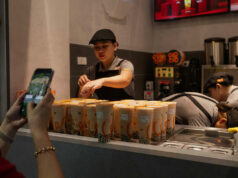When it comes to food, consumers seek ‘nutrition that goes beyond satiety’ — expert
A renewed interest in personal health and the environment is driving the way food products are marketed to consumers. “The emphasis has shifted from previous priorities such as work and the accumulation [of things] to home and self-improvement,” said Nicole Fall, founder of market intelligence company Asian Consumer Intelligence/Five by Fifty. “Consumers are now also aware of the planet’s connectivity thanks to the pandemic. A virus that originated in China is impacting Europe and the US far more than its country of origin.”
In a virtual event on food tech, Ms. Fall identified three key trends: the switch to “offensive” or more powerful language cues; the increased emphasis on products that enhance brain focus; and the impact of personal consumption.
SWITCH TO OFFENSIVE
Food products now “fight” against health-related foes said Ms. Fall. Consumers, she continued, “seek nutrition that goes beyond satiety” and think of food as tools that will help them get through the pandemic.
The microbiome—or the collection of all microbes like bacteria, fungi, and viruses that naturally live on and in our bodies—is becoming more prominent as a concept for improving health.
In its Asia-Pacific probiotics market forecast, Mordor Intelligence noted that the Japanese-based brand Yakult is so prevalent locally that its products are served as part of school lunches and delivered to homes by its employees.
Other product examples include tonics with plant prebiotics and cumin and linseed snacks.
BRAIN FOCUS
Brands are shifting their claims to include physical health, mental health, and brain nutrition. Examples include products with brain-boosting ingredients such as organic cacao-flavored mushroom lattes and low-calorie, omega-3 enriched salmon skin chips.
The brain focus category extends to focus, relaxation, and stress relief. “A lot of people are struggling to relax,” Ms. Fall added. “They want their food to help them.”
CONSUMPTION IMPACT
A product can be plant-based and better for the planet, but it means nothing if it’s wrapped in layers of non-recyclable or non-compostable packaging. Marketers seeking to differentiate their sustainability credentials are capitalizing on the growing number of consumers who are consciously choosing sustainable alternatives especially since the pandemic has created a global plastic problem.
In the Philippines, almost 164 million pieces of sachets are used in the Philippines daily, according to a 2019 audit by the NGO Global Alliance for Incinerator Alternatives, equating to around 59.7 billion pieces of sachets yearly.
In the US, according to Ms. Fall, one billion snacks are consumed daily. “Each creates a carbon footprint and most will leave behind their very own single-use plastic wrapper,” she said. “That’s a problem we can fix together, one delicious snack at a time.”
She cited milk teas served in reusable mason jar glasses and blueberry bars wrapped in sustainable packaging as examples of eco-conscious brands.
Indie food brands, said Ms. Fall, will start touting their eco-credentials, the same way indie beauty brands are doing now. — Patricia B. Mirasol



